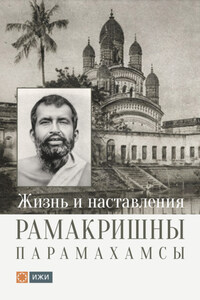Foreword Do Not Be Afraid
by Jack Heaslip
Do you know how many times the phrase “Do not be afraid” appears in the Bible? One website says it is 365 times. I prefer to say “lots of times.”
What has fear to do with a book on love? God’s love at that? Even before Love Wins was released, fear was at work. People had opinions about a book they hadn’t read. I was told I needed to be skeptical, suspicious, nervous, critical, afraid, but mostly “cautious.” Caution must be good, mustn’t it? The trouble is that caution can be fear dressed up to look right and proper and maybe a shade holy.
Fear also could be heard in the questions being asked. Is it okay to question God like that? Is he destroying faith? Why doesn’t he respect our tradition, our catechism?
If you are in a group, look around and see how many people show signs of fear and suspicion. Look in a mirror for the same signs.
Jesus said, “Do not be afraid.” Angels said, “Do not be afraid.” God said it too.
After all these things, this word of God came to Abram in a vision: “Don’t be afraid, Abram. I’m your shield. Your reward will be grand.” (Gen. 15:1, MSG)
But the angel assured her, “Mary, you have nothing to fear. God has a surprise for you.” (Luke 1:30, MSG)
But Jesus was quick to comfort them. “Courage, it’s me. Don’t be afraid.” (Matt. 14:27, MSG)
So why shouldn’t we be afraid? Because God can be trusted.
So with a God who can be trusted we can head off into new territory or a fresh experience of old territory. We can ask questions. We do not need to be afraid.
Because we can trust God and not be afraid, we are then free to love. Love is the bottom line!
Everyone who loves is born of God and experiences a relationship with God. (1 John 4:7, MSG)
It is like love meeting love. Our shallow attempts at loving are embraced by God’s mighty love. That, for me, is powerful stuff. With that sort of confidence we can really go for the experience and the understanding of God.
There is no room in love for fear. Well-formed love banishes fear. Since fear is crippling, a fearful life—fear of death, fear of judgment—is one not yet fully formed in love. (1 John 4:18, MSG)
God is love! It’s that simple, that profound.
Paul believed this. He gave the Corinthians a wonderful description of what our religion should involve and what it should look like: “For in Christ, neither our most conscientious religion nor disregard of religion amounts to anything. What matters is something far more interior: faith expressed in love” (Gal. 5:6, MSG).
Isn’t that brilliant? Religion and nonreligion are firmly put in their place by God’s love. And our intellects are given something to work on. Paul encourages us to think! It is okay to think! Sometimes our little gray cells are put on the back burner by those who want us to follow a faith they prescribe. It is good to unwrap a package. How can we receive the gift if we don’t delve a bit?














